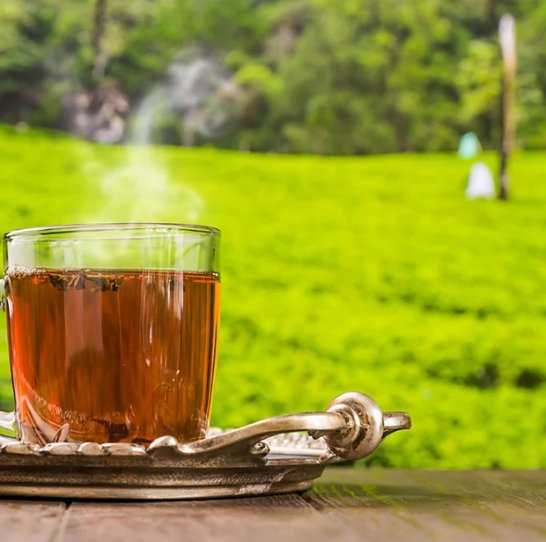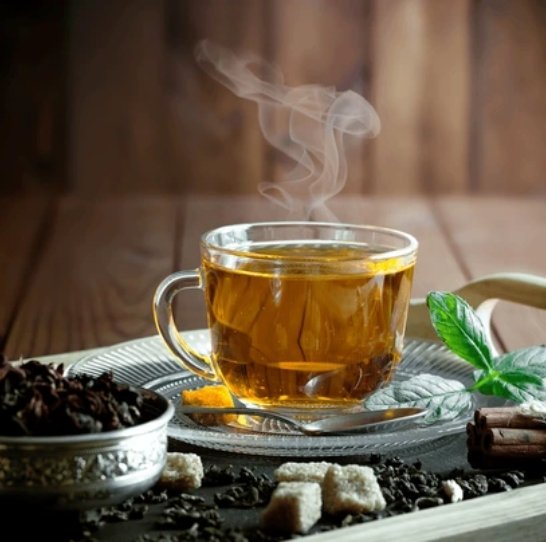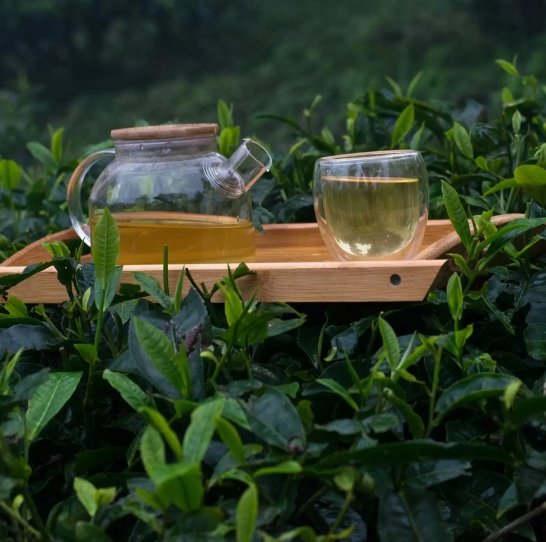
Darjeeling tea
Darjeeling tea is a world-famous black tea grown in the Darjeeling district of West Bengal, India. Known for its unique taste and aroma, this tea is grown on the steep slopes of the Himalayan foothills at altitudes between 610 and 2134 metres. The unmistakable flavour of Darjeeling tea is the result of its plant genetics, soil conditions, climate and traditional processing methods. It is protected by certification to guarantee its authenticity and quality.
- Darjeeling tea is grown in 87 tea gardens in the foothills of the Himalayas.
- The unique flavour is influenced by the region’s altitude, soil conditions, rainfall and temperature.
- The tea is processed according to the traditional orthodox method, which includes withering, rolling, oxidising, drying and sorting.
- Varieties of Darjeeling tea include whole leaf (FTGOP), broken (TGBOP) and fannings (GOF).


- Darjeeling also produces white tea, which is made from buds and young leaves, and green tea, which is only slightly oxidised.
- The Tea Board of India regulates the industry and monitors certification for quality assurance.
- The Darjeeling logo, which shows an Indian woman holding tea leaves in her hand, is a certification mark for authentic Darjeeling tea.
- Darjeeling tea is recognised worldwide and is highly appreciated by tea lovers.